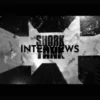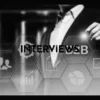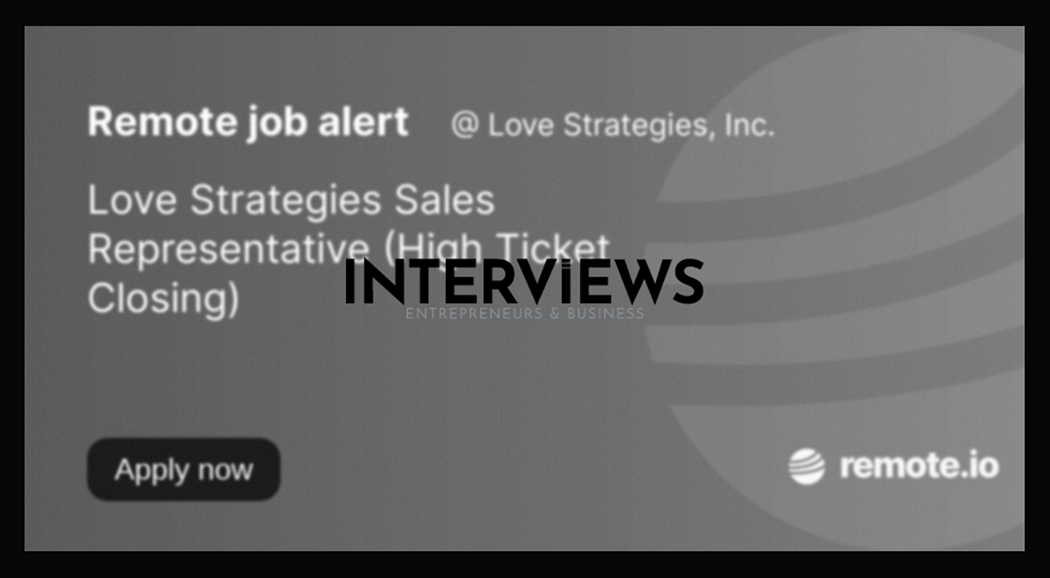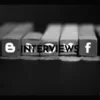Unlock the Lucrative World of Remote High Ticket Closing: Your Expert Guide
Do you want to escape the daily grind? High ticket closing offers a chance to make thousands from your couch. This is not just an online fantasy; it’s a thriving career. Let’s explore what it is, its legitimacy, and how you can join this lucrative field.
What Exactly is Remote High Ticket Closing?
Remote high ticket closing is a sales role from home. You close deals for expensive products or services via online communication. These transactions usually cost four figures or more. Your job is to connect with potential clients and understand their desires and needs. You help them invest in valuable solutions.
Is Remote Closing a Real Job?
Yes, remote closing is a genuine profession. It allows you to finalize deals from anywhere. All you need is a good internet connection. This includes home offices, cafés, or even beaches. Many businesses adopt remote teams, making high ticket closing a significant trend in sales.
High Ticket vs. Low Ticket Closing: Spot the Difference
The main distinction lies in price. High ticket closing means selling expensive offerings. Buyers face significant commitments. Low ticket sales deal with minor purchases. Consider selling a $20 gadget versus a $20,000 consulting service. The strategies, skills, and earnings vary greatly.
Essential Skills and Qualities of a High Ticket Remote Closer
Are you ready to be a remote closing expert? Specific skills are crucial for success in this role.
Communication: Your Verbal Arsenal
Communication is vital in sales. You must convey value with clarity. This means effective speaking and active listening. Pay attention to verbal and non-verbal cues, to understand clients completely. Effective listening captures hidden needs and concerns.
Negotiation: The Art of the Deal
Negotiation skills are essential. Initial prices often do not seal deals. You must handle objections and build agreement, achieving a win-win for both parties. It is about striking a balance where all feel satisfied enough to proceed.
Persuasion: Influencing with Integrity
Persuasion is different from manipulation. It helps your prospect realize the value you provide. Understand their pain points, showing how your high-ticket offering resolves their issues. Mastering influence is key to closing lucrative deals.
Understanding Client Needs: Empathy in Action
No more generic pitches. Deep comprehension of a client’s unique needs is necessary. Anticipate their challenges before they express them. This shows empathy. Know their goals and customize your approach to address them.
Confidence and Charisma: Projecting Authority
Confidence means a quiet self-assurance that inspires trust. Add charisma, a magnetic personality that attracts, and you have a winning combo. Clients are likely to invest heavily when they feel confident in you and your offering.
Persistence and Resilience: Bouncing Back from “No”
Expect rejection in high ticket sales. Each “no” isn’t the end. Learn from setbacks and push onward. Persistence and resilience are vital tools in this field.
Self-Discipline: Your Remote Work Superpower
Remote work means freedom but requires discipline. Without a boss watching, you become your own manager. Focus on tasks, use time wisely, and resist distractions. Self-discipline forms the foundation of remote success.
Strong Networking Skills: Expanding Your Reach
Networking matters, even online. Build connections and nurture professional relationships. Successful high ticket closers know that a strong network generates leads and opportunities.
Active Listening: Hearing Beyond the Words
Active listening is different from passive hearing. Engage fully when prospects speak. Look for verbal cues and tones for deeper understanding. Often, insights lie between the spoken words.
Your Roadmap: How to Become a Remote High Ticket Closer
Curious how to enter remote high ticket closing? Here’s a step-by-step plan to guide you.
Step 1: Sales Experience is Your Launchpad
You need a solid foundation in sales. Experience is essential for high ticket closing. Gain skills in any sales environment, be it retail or B2B. Consider it your training period.
Step 2: Polish Your Application Arsenal
Your resume forms the first impression. Craft it with care. Emphasize your sales successes and relevant skills. Tailor your application to demonstrate your fit for the closing role.
Step 3: Explore the Remote Landscape
Search for remote opportunities on job boards. Platforms like LinkedIn, Indeed, and specialized sites are helpful. Look specifically for “remote high ticket closer” roles.
Step 4: Apply, Apply, Apply (Strategically)
Avoid random submissions of applications. Target companies that align with your interests. Customize each application for maximum impact. Quality trumps quantity here.
Step 5: Nail the Interview Process
Virtual interviews have unique dynamics. Prepare to highlight your skills through the screen. Practice video calls and ensure a polished online presence. Treat the interview like a closing call.
Step 6: Understand Your Earning Potential – It’s Real Money
Learn about your potential earnings before starting. Research salary and commission for remote closers. Grasp the earning opportunities available, noting the effort needed to achieve them.
Develop and Refine: Continuous Improvement is Key
Becoming a top closer is a continuous journey. Master communication tools and refine closing techniques. Build your professional network. Stay committed to learning and enhancement.
The Remote Closing Process: Digital Efficiency
Forget paperwork and cluttered offices. Remote closing emphasizes digital efficiency. All transactions occur online.
Digital All the Way
The remote closing process thrives on its digital format. Document verification and signing happen online for speed and convenience.
Remote Notarization: Legally Binding, Virtually
Remote online notarization ensures secure transactions. This process is efficient and legally valid, regardless of where parties are located.
Show Me the Money: Salary and Earning Potential
Now, let’s discuss earnings in remote high ticket closing.
Hourly and Annual Averages: The Baseline
The average hourly pay for High Ticket Closers is around $17 in the US, as of March 2025. Annually, this averages about $113,000. However, actual earnings vary based on experience and commission structures.
Experienced Closers: Uncapping Your Potential
Experienced high ticket closers often maximize their earnings potential significantly.
With a solid closing rate of 30% or higher, a person can earn serious income. Expect $10,000 to $20,000 per month. Full-time closers with a 20% closing rate may realistically reach $17,000 to $20,000 monthly. That is significant income.
Commission-Based Power: Your Performance, Your Paycheck
This compensation model is mostly commission-based. Remote closers earn a percentage of the revenue generated, typically around 10%. Thus, your income depends on your performance. Close more deals to earn more money. It’s a direct correlation.
Finding Remote High Ticket Closing Jobs: Your Hunt Begins
Ready to start your job search? Here are some places to look.
Online Job Boards: Your Digital Hunting Grounds
Online job boards are key resources. Sites like LinkedIn, Indeed, and Remote.co regularly list remote sales roles, including high ticket closing positions. Set alerts and search actively. Opportunities are available.
Networking: Tapping Your Connections
Do not underestimate the power of networking. Inform your professional contacts that you seek remote high ticket closing roles. Attend virtual events, engage in online communities, and leverage your network. Best opportunities often come through connections.
Challenges and Considerations: Reality Check
The path isn’t always smooth. Remote high ticket closing brings specific challenges.
Longer Sales Cycles: Patience is Key
High ticket items often involve longer sales cycles. Prospects take time to consider significant investments. This can be mentally taxing. Patience becomes crucial. Prepare for a marathon, not a sprint.
Higher Pressure and Scrutiny: Deliver Results
Bigger deals equate to bigger pressure. Expect increased scrutiny from sales managers for results. The stakes rise, as do expectations. You will be under the microscope to perform well.
Fewer Prospective Buyers: Targeting Efforts
The pool of potential buyers for high ticket items is smaller. Finding and qualifying leads demands more effort and targeted strategies. It is not about volume; it is about precision targeting.
Intense Competition: Be Aware
High earning potential attracts competition. Anticipate fierce rivalry and potentially aggressive sales tactics from others pursuing the same deals. Stand out and bring your best game.
Marketing Matters: Beyond Closing Deals
Surprisingly, the real hurdle is not the closing itself; effective marketing takes precedence. Generating qualified leads for high ticket items is a challenge. Sales ability is vital, but a strong marketing strategy fuels your pipeline.
What Exactly Constitutes a “High Ticket” Item?
Let us define “high ticket.” It involves more than just high cost; it’s about value.
The $1,000 Threshold: A Guideline
A general guideline is that anything priced at $1,000 or more is considered “high ticket.” Though the exact price point can vary, it is a helpful rule. It constitutes a significant investment for most buyers.
High Value Proposition: Worth Investment
High ticket items are not only expensive; they offer significant value. Examples include luxury cars, high-end real estate, or specialized consulting services. Price reflects the premium value and impact they provide.
Examples of High Ticket Domains: Range of Industries
The high ticket realm spans diverse sectors.
- Luxury Goods: Cars (BMW, Mercedes), watches (Rolex, Patek Philippe), designer clothing (Gucci, Louis Vuitton).
- Real Estate: Luxury homes, commercial properties, land development.
- Specialized Services: Business and life coaching, financial planning, private aviation.
- Business Solutions: Enterprise software, advanced tech solutions.
- Education: Premium online courses.
- High-End Products: Appliances and more.
High ticket affiliate products also exist, comprising software, courses, luxury goods, and other items.
Remote Closing in Real Estate: A Concrete Example
Remote closing is transforming industries, notably real estate.
Key Features of Remote Real Estate Closing:
- E-Signatures: Use DocuSign and similar platforms as digital signature tools.
- Video Conferencing: Zoom replaces in-person meetings for verification and document review.
- Online Payment Systems: Wire transfers replace paper checks for funds.
- Hybrid Approach: Some closings blend digital with physical, using electronic signing for documents and brief notary meetings.
- Remote Notarization (RON): Some states allow online notarization.
Remote Real Estate Closing Process Overview:
- Document Review: All parties review documents online.
- Identity Verification: Verify identity on video calls.
- Electronic Signing: Use e-signature software to sign documents.
- Notarization: Meet a notary or use RON if necessary.
- Fund Transfer: Finalize transactions with electronic fund transfers.
- Key Delivery: Keys are delivered by an agent.
Benefits of Remote Real Estate Closings:
- Convenience: Close from anywhere, saving time.
- Efficiency: Streamlined processes with digital tools.
- Safety: Crucial during times when in-person meetings can be risky.
Remote Closing Friendly States:
Many US states support remote closing like Alaska, Arizona, Colorado, Florida, and more. Check your state’s regulations to confirm.
Securing High Ticket Clients: Relationship-First Approach
Closing high ticket deals relies on building relationships effectively.
Personalization Over Automation: Human Connection
Avoid generic outreach at all costs. Personalization in high ticket closing is essential. Treat prospects as individuals rather than names on a list. Personalized communication fosters trust.
Guide, Not Salesperson: Be a Trusted Advisor
Ditch the pushy persona entirely. Be a guide, a trusted advisor understanding their needs while offering valuable solutions. People buy from those they trust.
Long-Term Vision: Build Relationships
Aim for genuine relationships over mere prospect lists. High ticket sales depend on relationships. Nurture connections, add value, and foster long-term partnerships.
Follow Up, Don’t Give Up: Show Persistence
Follow-up matters greatly. Many deals do not close on first contact. Consistent follow-up can convert a “maybe” into a “yes.” Persistence counts more than pushiness in sales.
Legitimacy and Scams: Stay Aware
While remote high ticket closing is valid, scams do occur. Keep caution in mind.
Red Flags: Spotting Job Scams
Watch for job postings with these warning signs:
- Offers that seem too good to be true.
- A lack of clear company information.
- Poor online reviews or warnings.
- Eager employers push for fast hiring.
- A requirement to pay to work.
- Poor communication from employers involved.
If something seems off, trust your instincts and avoid those opportunities.
Remote Work Basics: Beyond Office Walls
Finally, let’s clarify remote work.
Remote Work vs. Work From Home: Flexibility of Location
Remote work goes beyond just working from home. It allows you to work anywhere outside traditional offices – in homes, cafés, co-working spaces, or while traveling. It ensures location independence with flexibility to choose your workspace.





